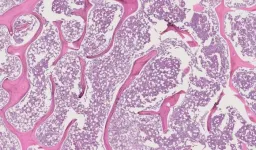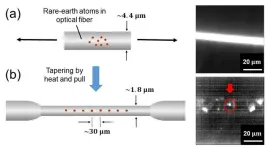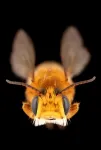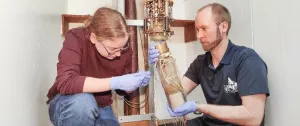(Press-News.org) Washington, D.C.—A new study published in Applied and Environmental Microbiology, a journal of the American Society for Microbiology, provides the first characterization of the coral microbiome under hypoxia, insufficient oxygen in the water. The research is an initial step toward identifying potential beneficial bacteria for corals facing this environmental stressor.
The researchers conducted the study because of the increasing awareness of the impact of the microbiome on host health. For example, a healthy human gut microbiome plays key roles in digestion, immune system response, and even mental health. As in humans, the coral microbiome has beneficial impacts on its host, the coral animal. These include disease prevention, nutrient uptake and resistance to environmental stressors like rising temperatures and acidification.
Despite this, scientists know far less about the role of the microbiome when corals experience hypoxia. The researchers wanted to understand how the microorganisms living on the coral's surface react to hypoxia. They thought the work may provide insights on how symbiotic microbes respond to host and environmental stress.
The researchers conducted their experiments in Bahiá Almirante, Bocas del Toro, Panama. “We picked this site because we have seen hypoxic events here associated with human activity, including agriculture and coastal development,” said lead study author Rachel Howard, Ph.D. candidate, Department of Soil, Water and Ecosystem Sciences, University of Florida. “We established experimental chambers which lowered dissolved oxygen on patches of coral reef. We then sampled the microorganisms living on corals in those chambers and corals outside the chambers after 2 days to see how the community of microbes differed with and without the stress of low oxygen.”
The researchers found that when oxygen levels dropped, the overall coral microbiome changed after only 48 hours, and the number of some specific types of bacteria increased. The bacteria that increased are those that can survive without oxygen and are ready to take advantage of a change in resources. When there is not enough oxygen in the water, it throws the community of microorganisms on the coral out of balance, and some of the suspected harmful bacteria, such as Desulfovibrionaceae or Clostridia, become more active.
“Because corals vary in their sensitivity to deoxygenation and given the crucial role of microorganisms in coral health, we suggest that changes in the microbiome may influence coral resilience to low oxygen conditions. Episodes of low oxygen, along with other impacts of climate change, pose a threat to coral and other marine organisms,” Howard said.
The researchers say that the microbiome is key to understanding the response of corals to stressors including warming seas. This study is a first step toward understanding the response of coral microbiomes to deoxygenation which, along with warming and ocean acidification, represent the “triple threat” of climate change to the ocean’s ecosystem.
The researchers plan to look more closely at the health of corals and relate that to the response of coral microbiomes when challenged by the stress of low oxygen.
###
The American Society for Microbiology is one of the largest professional societies dedicated to the life sciences and is composed of 36,000 scientists and health practitioners. ASM's mission is to promote and advance the microbial sciences.
ASM advances the microbial sciences through conferences, publications, certifications, educational opportunities and advocacy efforts. It enhances laboratory capacity around the globe through training and resources. It provides a network for scientists in academia, industry and clinical settings. Additionally, ASM promotes a deeper understanding of the microbial sciences to diverse audiences.
END
Investigators examine shifts in coral microbiome under hypoxia
2023-11-02
ELSE PRESS RELEASES FROM THIS DATE:
Johns Hopkins Medicine researchers create machine learning model to calculate chemotherapy success in patients with osteosarcoma
2023-11-02
A research team at Johns Hopkins Medicine has created and trained a machine learning model to calculate percent necrosis (PN) — or, what percentage of a tumor is “dead” and no longer active — in patients with osteosarcoma, a type of bone cancer. The model’s calculation was 85% correct when compared to the results of a musculoskeletal pathologist. Upon removing one outlier, the accuracy rose to 99%.
A post-chemotherapy PN calculation helps provide the patient with a prognosis for survival. For example, a PN of 99% indicates that 99% of the tumor is dead, suggesting chemotherapy was effective and the patient has improved ...
Regenstrief’s Hickman to be inducted as Gerontological Society of America fellow
2023-11-02
INDIANAPOLIS — Regenstrief Institute’s Susan Hickman, PhD, has been elected as a fellow of the Gerontological Society of America (GSA). Dr. Hickman will be inducted on November 9 into the social research, policy and practice section of the GSA College of Fellows during the society’s 2023 annual scientific meeting.
In addition to being director and a research scientist with the IU Center for Aging Research at Regenstrief Institute, Dr. Hickman is a professor at Indiana University School of Nursing, the Pettinga Chair in Aging Research with the Indiana University School of Medicine and the co-director of the IUPUI ...
Menopause and heart health – 4 tips for a healthy heart while your body is changing
2023-11-02
DALLAS, Nov. 2, 2023 — Medical experts note that hormone and body composition changes during the transition to menopause can increase the risk of developing heart disease after menopause.[1] The American Heart Association, a global force for healthier lives for all, offers tips to support women’s heart health during this transition.
“More women in the U.S. are living longer, and a significant portion of them will spend up to 40% of their lives postmenopausal,” said Brooke Aggarwal, Ed.D., M.S., F.A.H.A., assistant professor of medical sciences in Cardiology ...
Self-powered microbial fuel cell biosensor for monitoring organic freshwater pollution
2023-11-02
The discharge of organic effluents—biodegradable waste materials from plants and animals—into freshwater bodies is a significant environmental concern, affecting the health and sustainability of these aquatic ecosystems. However, the methods currently available for inspecting water quality are complex and costly.
In this regard, researchers from Ritsumeikan University, Japan, have recently developed a self-powered, inexpensive, and floating biosensor for monitoring water quality at the input of freshwater lakes and rivers. This paper was made available online on September 9, 2023, and was published in Volume 200 of the Biochemical Engineering ...
Optical-fiber based single-photon light source at room temperature for next-generation quantum processing
2023-11-02
Quantum-based systems promise faster computing and stronger encryption for computation and communication systems. These systems can be built on fiber networks involving interconnected nodes which consist of qubits and single-photon generators that create entangled photon pairs.
In this regard, rare-earth (RE) atoms and ions in solid-state materials are highly promising as single-photon generators. These materials are compatible with fiber networks and emit photons across a broad range of wavelengths. Due to their wide spectral range, optical fibers ...
The influence of media narratives on microplastics risk perception revealed
2023-11-02
In a world increasingly aware of the environmental challenges posed by microplastics, a pioneering study conducted by Ruxandra Malina Petrescu-Mag from Babes-Bolyai University, and published in PeerJ Life & Environment, sheds new light on the impact of media narratives on public perception and awareness of microplastic risks.
Microplastics - tiny plastic particles that pollute both terrestrial and marine ecosystems - have garnered significant scientific, media, and public attention in recent years. However, this study reveals a lack of consensus between the scientific community and the media, particularly when it comes to how ...
TU Delft researchers discover new ultra strong material for microchip sensors
2023-11-02
Researchers at Delft University of Technology, led by assistant professor Richard Norte, have unveiled a remarkable new material with potential to impact the world of material science: amorphous silicon carbide (a-SiC). Beyond its exceptional strength, this material demonstrates mechanical properties crucial for vibration isolation on a microchip. Amorphous silicon carbide is therefore particularly suitable for making ultra-sensitive microchip sensors.
The range of potential applications is vast. From ultra-sensitive microchip sensors and advanced solar ...
Buzz around new centralized pollination portal for better global bee data
2023-11-02
A powerful new way to fill major gaps in public bee data – including from Africa, Asia and other under-reported zones – has been addressed with a centralised tool for consolidating bee pollinator occurrences around the globe.
Called BeeBCD, the package outlined in a new Nature journal article, brings together more than 18 million bee occurrence records from multiple public and private databases to improve accuracy and accessibility of species data from around the world for future conservation, research and farming management.
The rationalised bee occurrence datasets will help support future plant and crop production ...
What a “2D” quantum superfluid feels like to the touch
2023-11-02
Researchers from Lancaster University in the UK have discovered how superfluid helium 3He would feel if you could put your hand into it.
The interface between the exotic world of quantum physics and classical physics of the human experience is one of the major open problems in modern physics.
Dr Samuli Autti is the lead author of the research published in Nature Communications.
Dr Autti said: “In practical terms, we don’t know the answer to the question ‘how does it feel to touch quantum physics?’
“These experimental conditions are extreme and the techniques complicated, but I can now tell ...
NIH grants support UCLA and Charles Drew University researchers' efforts to end HIV epidemic
2023-11-02
NIH grants support UCLA and Charles Drew University researchers' efforts to end HIV epidemic
The National Institutes of Health (NIH) has granted $2.1 million to UCLA’s Center for HIV Identification, Prevention, and Treatment Services (CHIPTS) and the UCLA-CDU Center for AIDS Research (CFAR) to support four research projects and an implementation science consultation hub. These awards will fund projects to strengthen research-community collaborations and enhance implementation strategies needed for the Ending the HIV Epidemic in the U.S. (EHE) initiative.
“These awards will support our scientists and ...





